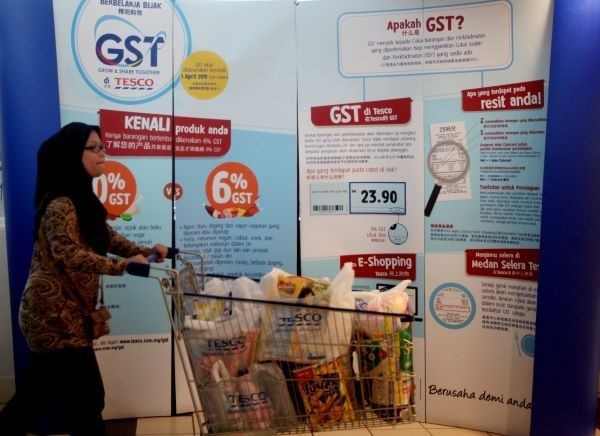
Image credit: Utusan Malaysia
As part of Malaysia's effort to bolster its economy, it needs to quickly infuse clarity and a roadmap for its economic recovery that will inspire confidence of local and foreign investors.
The first step towards this would be to re-introduce the goods and services tax (GST) that will help plug the national deficit hole to the tune of RM1.5 trillion and forestall the shadow economy estimated to be around RM300 billion.
GST was first introduced in 2015 but was scrapped in 2018 when the Pakatan-led government swept into power.
The most compelling reason for the re-introduction of the GST would be that it would rake in an additional revenue for the government to the tune of RM44 billion compared to RM22 billion from the SST.
GST is also a holistic tax structure that is an equitable system that allows manufacturers, wholesalers, and retailers to claim the input tax and only the consumers who will eventually pay the tax.
Currently an estimated 10 per cent of the population pays tax.
This is certainly not tenable as a small population base supports a large base and thus it needs to look at an alternative system.
The tax would also help Malaysia's overall dependence on the revenue from oil whose prices fluctuate by the vagaries of the world economy and the instability surrounding it aside from the fact that it is a depleting source of wealth.
As we move on, another concern is that external headwinds are likely to cause a declining export revenue coupled with declining import duties due to trade liberalisation.
All this warrants the government to look for a stable source of income which is a compelling reason to re-introduce the GST which provides a stable source of income that is less susceptible to economic downturns due to the consumption nature of the tax.
This is imperative as many government projects that are stalled could be revived with additional funds flowing into government coffers.
GST is also a transparent system that can address the problems of the "shadow economy" which has an estimated turnover of RM300 billion and has escaped taxes in the past.
The implementation of the GST led to the shrinking of the shadow economy from 25 per cent to 15 per cent of the normal economy.
Still, there are lingering concerns about the re-introduction of the GST and the government must ensure that this time the administration and collection of the GST is more efficient.
Unlike in the past, the government must ensure that there are no backlogs in refunds.
Lengthy process in refunds led to cash-flow problems for businesses.
Another notable feature of the re-introduction of the GST should be that there is sound enforcement from enforcement officers to ensure that there is no excessive increase in prices and that the existing prices are per the standard price of goods and services.
There should be clarity on the goods that are to be zero-rated which must be conveyed to both retailers and consumers.
There are many goods that would be exempt from the GST.
It includes essential foodstuff, water and electricity, government services and public transport, health, education, highway, and toll to name a few.
The government must also ensure that there is no excessive profiteering on the part of the retailers, and it is paramount that all players in the distribution channel keep records to ensure the smooth implementation of the system.
There has been a spate of calls from certain quarter for the introduction of an alternative form tax other than the GST.
Proponents of an alternative form of tax other than GST must give compelling reasons as to why they prefer a tax structure that is less transparent than the GST.
The plans to abort the GST when Pakatan took over the reins had led to a big hole in the government coffers that it has yet to recover.
With 174 countries already implementing the GST, proponents of the alternative system must tell us why the 174 countries had made a mistake.
Feeble arguments on the part of these groups can only lead Malaysians to infer ulterior motives on their part.
With re-introduction of the GST and more revenue coming into the coffers, it would be able to add clarity and a clear road map for the recovery of the economy.
Source: https://www.nst.com.my/news/nation/2023/09/950586/gst-would-add-clarity-and-roadmap-malaysias-economic-recovery

